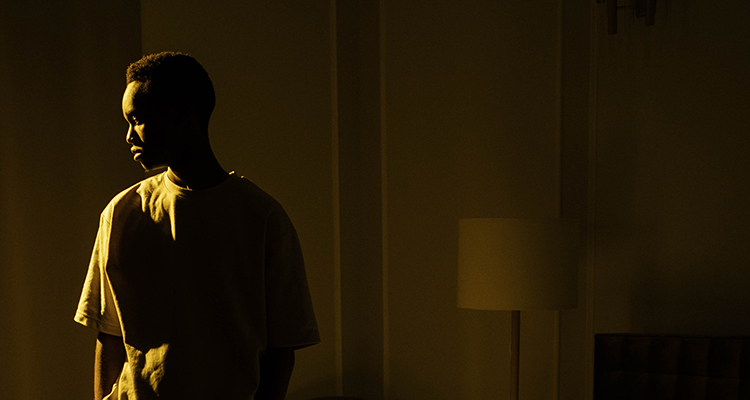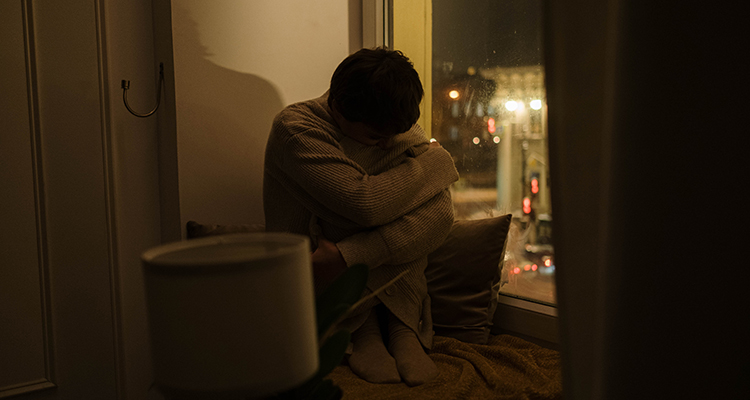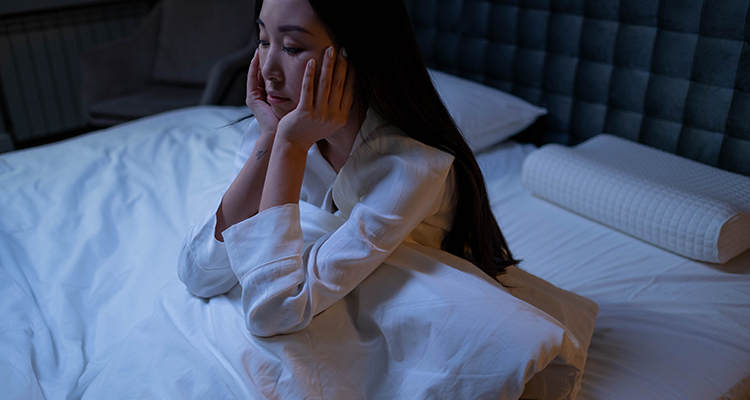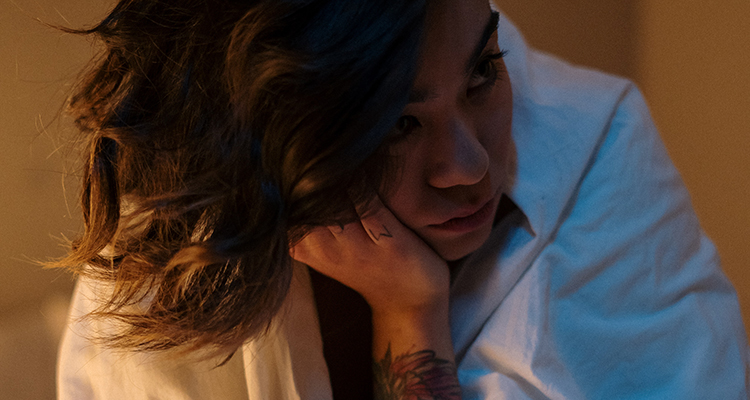What is ICD-10: Insomnia?

“Electronic medical records are, in a lot of ways, I think the aspect of technology that is going to revolutionize the way we deliver care. And it’s not just that we will be able to collect information, it’s that everyone involved in the healthcare enterprise will be able to use that information more effectively.”
~Risa Lavizzo-Mourey
Can’t sleep? Constantly tossing and turning? You lie down for bed but your racing mind keeps you awake. But you have to work in the morning! There’s no way you can be productive and efficient at work if you can’t fall or stay asleep. What is going on with you?!
If you have a hard time falling and/or staying asleep at night most, if not every night, there is a good possibility that you have insomnia. If so, there are plenty of tools you can use to help you get a good night’s sleep. But before you can partake in these resources, you’ll probably need an “official” insomnia diagnosis from your doctor.
Content
Insomnia

Insomnia is a sleep disorder that makes it difficult, if not impossible, to fall asleep and/or stay asleep throughout the night. If you have insomnia, it may take you a long time to drift-off, lead to frequent wake-ups in the middle of the night, trigger constant tossing and turning, and/or cause you to awaken feeling fatigued, groggy, and disorientated.
Acute insomnia is a type of insomnia that occurs infrequently. In other words, you may experience, but never again. Chronic insomnia, on the other hand, typically lasts a long time or reoccurs regularly or many times. Acute insomnia is most prevalent in women over the age of 60.
Types of Insomnia
There are two types of insomnia – primary and secondary.
- Primary insomnia is an inability to fall and/or stay asleep because of internal and external factors, such as noise, light, atmosphere, work-related, relationship, or personal stress, temperature, or the loss of someone or something.
- Secondary insomnia is an inability to fall and/or stay asleep because of an ailment or health condition, such as lupus, anxiety, depression, asthma, restless leg syndrome (RLS), cancer, arthritis, chronic fatigue syndrome, chronic pain, influenza, dementia or Alzheimer’s syndrome, thyroid problems, etc.
Symptoms & Diagnosis

Insomnia typically involves staying up late at night because you are unable to fall asleep, waking-up throughout the night, struggling with daytime grogginess and fatigue, being easily irritated, annoyed, or frustrated, and waking-up too early. If you are experiencing any of these symptoms it may be time to talk to your doctor about your sleep concerns.
He or she will assess your symptoms – i.e. poor sleep quality, daytime fatigue and grogginess, a lack of motivation, an inability to focus or concentrate or complete tasks in a timely manner, anxiety or constant worrying over not being able to fall and/or stay asleep.
Then, your doctor will perform a physical exam and ask you about your medical history and experiences to determine why you are experiencing insomnia. He or she may also order a sleep study to evaluate your sleep patterns.
Insomnia ICD-10 Codes & Guidelines

Insomnia ICD-10 and guidelines can be found in the ICD-10 CM Manual – Chapter 5 (Mental and Behavioral Disorders – Codes: F01-F99) and Chapter 6 (Diseases of the Nervous System – Codes: G00-G99).
Note: Check the “Exclusion Notes” before coding insomnia because some insomnia-related symptoms and conditions may also be separately coded. For instance, even though unspecified insomnia is ICD G47.00, certain components of this condition should also be coded.
Such as, if night terrors or nightmares or sleepwalking is present, then F51 codes should also be coded with the G47.00. Also, if sleep apnea is linked to drug-induced insomnia, the code should be G47.00, along with a F11-F19 code, depending on the substance.
| Insomnia | |
| Insomnia | G47.00 |
| Insomnia/hyposomnia due to a health condition | G47.01 |
| Insomnia, unspecified | G47.09 |
|
F51.01 |
|
Short-term insomnia
|
F51.02 |
| Paradoxical insomnia | F51.03 |
| Chronic insomnia Conditioned insomnia Psychophysiological insomnia |
F51.04 |
| Insomnia due to depression, anxiety, or another mental health condition Psychiatric insomnia |
F51.05 |
| Insomnia not due to a health condition or substance abuse, but specified | F51.09 |
|
Insomnia due to alcohol:
|
F10.182 F10.282 F10.982 |
|
Insomnia due to opioids:
|
F11.182 F11.282 F11.982 |
|
Insomnia due to sedative, anxiolytic or hypnotic factors:
|
F13.182 F13.282 F13.982 |
|
Insomnia due to cocaine:
|
F14.182 F14.282 F14.982 |
|
Insomnia due to Amphetamines, caffeine, or another stimulant such as:
|
F15.182 F15.282 F15.982 |
|
Insomnia due to psychoactive substances:
|
F19.182 F19.282 F19.982 |
| Childhood behavioral insomnia | Z73.810 – Z73.819 |
| Fatal familial insomnia | A81.83 |
ICD-10 Insomnia Case Studies

Listed below are two ICD-10 insomnia case studies:
Michael
Michael, a 45-year-old married man, sought treatment because he had been unable to sleep for 3 months. Michael reported that his problems began after his twin brother died from a car accident. He had never had a hard time sleeping before his brother’s death. By the time Michael sought treatment he was drinking between four and five cups of coffee each day and two pegs (60 ml) of whiskey before bed every night.
Michael’s wife reported that Michael sometimes suffers from “shaky or jerky legs” while asleep. However, he does not appear to have any chronic illnesses. On the day of his doctor’s visit, Michael’s vitals were normal. And, after a full physical exam nothing was deemed “abnormal” or “irregular.” After the assessment, Michael’s doctor coded his condition as “adjustment disorder” (F43.20).
Michael’s condition was incorrectly coded. The ICD-10 code should have been F51.02 (adjustment-related insomnia).
Jennifer
Jennifer, a 20-year-old college student, who, at the time, was pursuing a business administration degree, sought treatment after struggling with waking-up too early every morning. Jennifer left home around 7:00 am each morning to attend her first class at 8:00 am. The problem was she kept waking up at 3:00 am each morning from a nightmare. After awakening, Jennifer was unable to fall back asleep so she would end-up being up until bedtime. Then, she’d be stressed, tired, and irritable at work.
When Jennifer presented the “sleeplessness” had been occurring for over a week and she was exhausted. She was desperate for relief. Jennifer did not appear to have a history of insomnia and did not partake in drugs or alcohol. During her initial visit her vitals were normal. The doctor performed a full physical exam on Jennifer and found that she was a healthy young lady with no cognitive deficits.
Jennifer’s doctor also ordered a neurological screen to be completed with a behavioral health specialist. And, after the exams, he coded her condition as “unspecified insomnia with nightmares” (G47.00 & F51.5). He prescribed Jennifer a week’s worth of Ambien and instructed her to follow-up with him in about a week.
Jennifer’s condition was coded correctly.
Note: The nightmare aspect of the insomnia was coded separately, as instructed in the “Exclusion Notes.”
Sleep Disorders the Can Trigger Insomnia

| Hypersomnia (NOS) | G47.10 |
| Hypersomnia due to a health condition | G47.14 |
| Narcolepsy with cataplexy | G47.411 |
| Narcolepsy without cataplexy | G47.419 |
| Recurrent hypersomnia | G47.13 |
| Idiopathic hypersomnia with prolonged sleep time | G47.11 |
| Idiopathic hypersomnia without prolonged sleep time | G47.12 |
| Primary hypersomnia | F51.11 |
| Poor sleep syndrome | F51.12 |
| Hypersomnia not due to a substance or known health condition | F51.19 |
| Sleep-Related Breathing Disorders | |
| Obstructive sleep apnea | G47.33 |
| Sleep-related non-obstructive alveolar hypoventilation | G47.34 |
| Obesity hypoventilation syndrome | E66.2 |
| Sleep-related hypoventilation/hypoxemia | G47.36 |
| Primary central sleep apnea | G47.31 |
| Cheyne stokes breathing patterns | R06.3 |
| Central sleep apnea/complex sleep apnea | G47.37 |
| Sleep apnea, unspecified | G47.39 |
| Dyspnea, unspecified | R06.00 |
| Other forms of dyspnea | R06.09 |
| Periodic breathing | R06.3 |
| Snoring | R06.83 |
| Other breathing abnormalities | R06.89 |
| Apnea, unspecified | R06.81 |
| Sleep apnea, unspecified | G47.30 |
| Circadian Rhythm Sleep Disorders (NOS) | G47.20 |
| Delayed-sleep | G47.21 |
| Advanced-sleep | G47.22 |
| Irregular sleep/wake | G47.23 |
| Free-running | G47.24 |
| Shift work (Shift work disorder) | G47.26 |
| Parasomnias | |
| Confused arousals | G47.51 |
| Sleep-walking | F51.3 |
| Night terrors | F51.4 |
| REM sleep behavior disorder | G47.52 |
| Recurrent isolated sleep paralysis | G47.53 |
| Nightmare disorder | F51.5 |
| Other sleep disorders not due to a substance or known health condition | F51.8 |
| Another parasomnia | G47.59 |
| Sleep-Related Movement Disorders | |
| Restless legs syndrome (RLS) | G25.81 |
| Periodic limb movement disorder | G47.61 |
| Sleep-related leg cramps | G47.62 |
| Sleep-related bruxism | G47.63 |
| Drug-Induced Sleep Disorders | |
| Sleep disorder due to opioid abuse | F11.182 |
| Sleep disorder due to opioid dependence | F11.282 |
| Sleep disorder due to opioid use, unspecified | F11.982 |
| Sleep disorder due to sedative, hypnotic or anxiolytic abuse | F13.182 |
| Sleep disorder due to sedative, hypnotic or anxiolytic dependence | F13.282 |
| Sleep disorder due to sedative, hypnotic or anxiolytic use, unspecified | F13.982 |
| Sleep disorder due to cocaine abuse | F14.182 |
| Sleep disorder due to cocaine dependence | F14.282 |
| Sleep disorder due to cocaine use, unspecified | F14.982 |
| Sleep disorder due to stimulant abuse | F15.182 |
| Sleep disorder due to stimulant dependence | F15.282 |
| Sleep disorder due to stimulant use, unspecified | F15.982 |
| Sleep disorder due to psychoactive substance abuse | F19.182 |
| Sleep disorder due to psychoactive substance dependence, in remission | F19.21 |
| Sleep disorder due to psychoactive substance dependence | F19.282 |
| Sleep disorder due to psychoactive substance use, unspecified | F19.982 |
Summary
Getting a proper diagnosis is extremely important with an ailment or condition – even insomnia. ICD codes can help doctors classify and identify your insomnia signs and symptoms, any atypical findings, triggers, and external factors. The goal of ICD-10 codes in insomnia studies is to help develop medications and tools and resources to improve your sleep quality so you can fall peacefully asleep and stay asleep throughout the night.

One of the benefits of ICD-10 codes is they have the ability to lower your assessment and treatment costs. They can also be used during research studies to identify ailments and health conditions. Without the proper codes, your health insurance may not pay for the cost of visits, tests, or treatment. There is also a risk that you could be prescribed the wrong medications or treatment plan.
Thus, it is important that your doctor notate the correct ICD-10 code(s) for your form of insomnia. Because, the last thing you want is to be misdiagnosed or miscoded when trying to find a remedy for your “sleeplessness.”
References
- American Sleep Association. (2021). Sleep disorders – ICD-10 codes and names. Retrieved from https://www.sleepassociation.org/health-professionals/sleep-disorders-icd-10-codes-names/
- MyMed.com. (2021). How is insomnia diagnosed? Retrieved from https://www.mymed.com/diseases-conditions/insomnia/how-is-insomnia-diagnosed#:~:text=In%20order%20for%20insomnia%20to%20be%20diagnosed%2C%20a,overall%20motivation%20and%20obvious%20signs%20of%20daytime%20dysfunction
- Channagangaiah. (2021). Insomnia ICD-10. RCM Guide. Retrieved from https://rcmguide.com/insomnia-icd-10/
- John Hopkins Medicine. (2021). Sleep study. Retrieved from https://www.hopkinsmedicine.org/health/treatment-tests-and-therapies/sleep-study
- Foley, L. (2020). Insomnia and seniors. Sleep Foundation. Retrieved from https://www.sleepfoundation.org/insomnia/older-adults
- Practo Blog for Doctors. (2014). What are ICD-10 codes and why are they important for doctors? Retrieved from https://doctors.practo.com/icd-10-codes-important-doctors/














